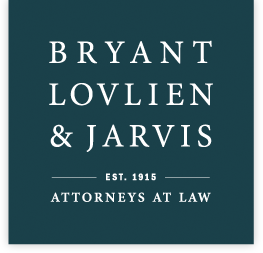The ubiquity of homelessness in many cities has played a role in increased scrutiny of laws regulating camping on public property. The following provides an overview of recent federal case law and related legislation at the state level, which dictate the ways in which local governments can control public space to help maintain the general welfare for all residents.
Federal Case Law
Martin v. City of Boise
In 2019, the Ninth Circuit Court of Appeals issued an opinion in Martin v. City of Boiseconcerning two municipal ordinances criminalizing certain conduct that effectively targeted homeless persons. One ordinance made it a misdemeanor to camp on streets, sidewalks, parks, or other public places at any time. The other ordinance prohibited occupying, lodging, or sleeping in any building, structure, or public place without permission from the owner or person entitled to possession. The court first discussed the number of homeless persons in the county in which Boise was located and the number of homeless shelters within the city.
After a discussion of the facts, the court held “‘so long as there is a greater number of homeless individuals in [a jurisdiction] than the number of available beds [in shelters],’ the jurisdiction cannot prosecute homeless individuals for ‘involuntarily sitting, lying, and sleeping in public.’” However, the court muddied the waters by noting that its holding was narrow and did not “suggest that a jurisdiction with insufficient shelter can never criminalize the act of sleeping outside. Even where shelter is unavailable, an ordinance prohibiting sitting, lying, or sleeping outside at particular times or in particular locations might well be constitutionally permissible. So, too, might an ordinance barring the obstruction of public rights of way or the erection of certain structures.”
A review of federal district courts interpreting Martin uncovers a strong consensus taking the Martin court at its word of a “narrow” holding to rule in favor of cities that clean and clear encampments in public spaces. These courts recognize that Martin does not: (1) limit a local government’s ability to evict homeless persons from particular public places; and (2) does not establish a constitutional right to occupy public property indefinitely. These district court decisions provide insight into how federal appellate courts might view similar issues in the future. Despite this trend, there is at least one important case that extended Martin.
Johnson et al. v. City of Grants Pass
On September 28, 2022, a three-judge panel of the Ninth Circuit Court of Appeals issued a decision in Johnson et al. v. City of Grants Pass (formerly Blake et al. v. City of Grants Pass). At issue in the class action lawsuit, among other matters, was whether several Grants Pass ordinances concerning sleeping and camping on public property violated the Cruel and Unusual Punishments Clause and the Excessive Fines Clause of the Eighth Amendment. The court provided an answer and helpful guidance concerning the former but provided no answer concerning the latter.
The main takeaways from Johnson concerning municipal camping/sleeping ordinances and the Cruel and Unusual Punishments Clause are the following:
- If a local government’s civil code concerning public sleeping/camping ultimately leads to criminal punishment, the pertinent civil ordinances will not escape the holding in Martin. In Johnson, the anti-sleeping and anti-camping ordinances at issue provided for a civil citation. Persons found to violate the ordinances multiple times could be barred from all city property. If a homeless person was found on city property after receiving an exclusion order, they were subject to criminal prosecution for trespass. Despite the first two regulatory steps being civil in nature, the court found that the ordinances violated the Cruel and Unusual Punishments Clause because the regulatory regime ultimately led to criminal prosecution.
- A city cannot prohibit necessary minimal measures to keep warm and dry while sleeping when there are no alternative forms of shelter available. Notwithstanding the foregoing, the court did not hold that a city cannot prohibit tents (at least in public parks), fires, stoves, and structures – “Consistent with Martin, these prohibitions may or may not be permissible.” Johnson, 50 F.4th 787, 812. In addition, the court acknowledged what should be obvious – other regulations unrelated to a person’s status may be enforced – “the park exclusion ordinance presumably may be enforced against Plaintiffs who engage in prohibited activity unrelated to their status as homeless persons.” Johnson, 50 F.4th 787, n.36.
- Also, worth noting, the appellate court confirmed the district court’s statement in Blake concerning homeless shelters with a mandatory religious focus. The court cited to a “holding” in Martin that may have been overlooked (partly because the holding isn’t precisely stated and because the asserted holding is present in the court’s standing analysis rather than its analysis under the Eighth Amendment). “When assessing the number of shelter spaces, Martin held shelters with a ‘mandatory religious focus’ could not be counted as available due to potential violations of the First Amendment’s Establishment Clause.” Johnson, 50 F.4th 787, 795.
The court left open two important questions:
- Does available outdoor space for legally permissible camping/sleeping suffice to allow a city to evict or punish the involuntary homeless for camping/sleeping in public at prohibited locations? The court noted several district court opinions answering the question in the affirmative. However, the court left us without a definitive appellate answer. “Because the City has not established any realistically available place within the jurisdiction for involuntarily homeless individuals to sleep[,] we need not decide whether alternate outdoor space would be sufficient under Martin. The district court may consider this issue on remand, if it is germane to do so.” Johnson, 50 F.4th 787, n.33.
- stating “[a]ny fine is excessive if it is imposed on the basis of status and not conduct. For plaintiffs, the conduct for which they face punishment is inseparable from their status as homeless individuals and therefore, beyond what the City may constitutionally punish”).
In conclusion, a city ordinance will not escape Martin by virtue of enforcement under a civil regulatory regime if the civil violations ultimately lead to a criminal offense. Homeless persons must be allowed some reasonable means to keep warm and dry taking into account the climate and seasonal nature of the area. Only beds in a secular shelter without stringent restrictions on entry, other than those dealing with health and safety, can assuredly be counted as an available shelter bed.
Although the Ninth Circuit side-stepped the issue of whether alternative outdoor space is sufficient under Martin, the weight of district court authority holds that available outdoor space at least allows eviction and civil enforcement of anti-camping/sleeping ordinances. Finally, we have to look to excessive fines cases outside those dealing with camping/sleeping ordinances for more developed guidance on excessive fines. However, local governments should be wary of the district court’s non-binding statement in Blake: “[a]ny fine is excessive if it is imposed on the basis of status and not conduct.” This notion could easily become law in a later appellate case.
Oregon Statutory Law
HB 3115 was conceived by a workgroup involving the League of Oregon Cities, the Oregon Law Center (often counsel for plaintiffs suing local governments), as well as individual cities and counties. The bill requires that any city or county law (criminal or civil) that regulates acts of sitting, lying, sleeping or keeping warm and dry outdoors on public property that is open to the public be “objectively reasonable” as to time, place, and manner with regard to persons experiencing homelessness. Reasonableness is based on the totality of circumstances including, but not limited to, the impact of the law on persons experiencing homelessness. Attorney fees are available to successful plaintiffs. The new law is not effective until July 1, 2023, for the purpose of providing time for cities to conform their local laws.
Presently, there is no clear guidance on what might be a reasonable time, place, and manner restriction. The legislative history and comments by the groups responsible for drafting and/or lobbying for passage of HB 3115 acknowledge that “objective reasonableness” will be different in different communities. Therefore, the context matters and local governments should work with legal counsel to craft ordinances that comply with federal and state law.
Other relevant Oregon law concerning homeless persons includes ORS 203.077 and ORS 203.079. ORS 203.077 requires cities and counties to develop a policy that “ensure[s] the most humane treatment for removal of homeless persons from camping sites on public property. ORS 203.079 details the required elements of a policy developed pursuant to ORS 203.077.
Some of the more salient requirements of ORS 203.079 include the following:
- At least 72 hours prior to removing homeless persons from established campsites, law enforcement must post notice, in English and Spanish, at all reasonably identifiable campsite entrances. The notice must include an address and phone number to locate and claim personal property that is removed from the campsite.
- Unclaimed personal property must be stored locally, in an orderly fashion and organized by individual to the extent ownership can be reasonably determined for a minimum of 30 days.
- Items having no apparent value or utility or that are in unsanitary condition may be immediately discarded.
- Weapons, controlled substances other than prescriptions, items that appear stolen or evidence of crime must be given to law enforcement.
- 72-hour notice is not required under all circumstances. For example: when there are grounds to believe that illegal activities are occurring; in the event of an exceptional emergency such as hazardous materials contamination, a public health emergency, or immediate danger; or if a funeral service is scheduled and 72-hours’ notice is not feasible, 24-hour notice may be sufficient at a campsite located in a cemetery.
- When a 72-hour notice is posted, law enforcement must report the noticed location to the local agency that delivers social services to the homeless.
This blog post is not an exhaustive discussion of the federal and state laws applicable to local ordinances that regulate homelessness and camping on public property and should not be relied upon as legal advice. If you are interested in understating a local government’s obligations to its homeless population in light of recent legal developments or would like help drafting a local ordinance to comply with HB 3115, you are encouraged to contact BLJ’s municipal law attorneys, Jeremy Green, Dustin Hawkins, and Courtney Osborn.

